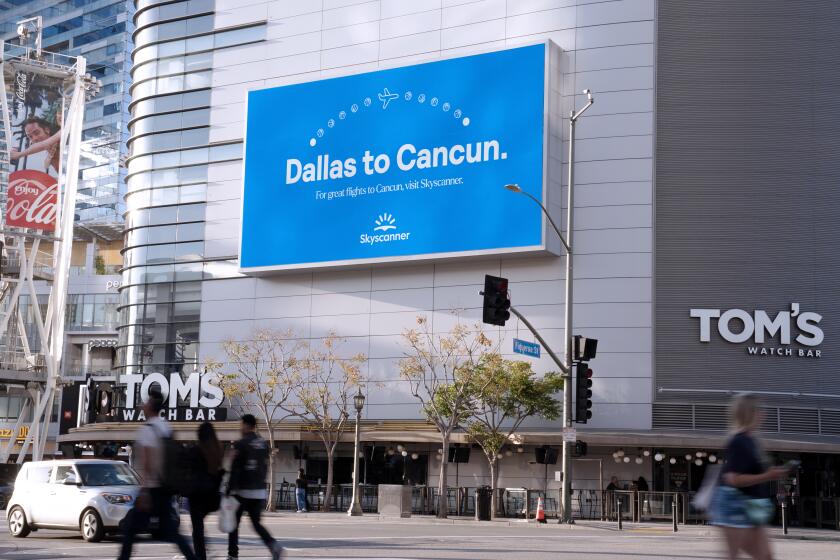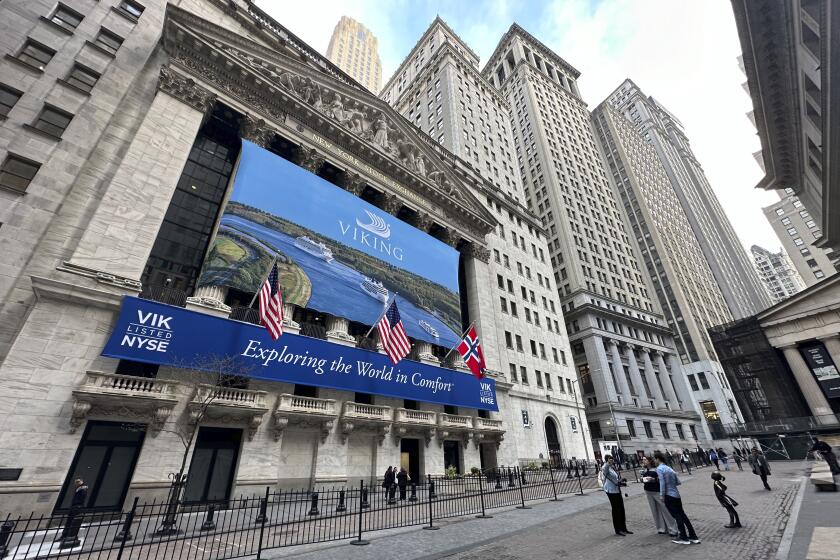Investors Ignore Refund Deadline
The deadline for investors to get money from Wall Street’s $1.4-billion settlement over biased research was Friday -- and almost half of those eligible might have failed to file claims.
About 75,000 investors were eligible for a share of the $432.8-million settlement. Applications postmarked after Friday won’t be accepted. Francis McGovern, a law professor at Duke University in Durham, N.C., who’s overseeing the settlement, said he was concerned that the response rate might be only 50%, as it was in previous cases.
“We want to give the money away,” said McGovern, who oversaw multimillion-dollar settlements from the Dalkon Shield contraceptive and silicone breast-implant cases.
Workers at the fund’s offices in Minneapolis and Fairbault, Minn., tried to reach investors as the midnight postmark deadline approached.
“We’ve sent letters,” McGovern said. “Two weeks ago, we started calling people.”
The payments will be based on a mathematical formula that takes into account when investors bought a stock and how much they spent. Checks will be mailed in January. Unclaimed money will be added to an $85-million investor education program set up as part of the settlement.
Investors could have applied if they could prove they lost at least $100 on any of 55 stocks, including AT&T; Corp., WorldCom Inc., Digital River Inc., Ask Jeeves Inc. and Just for Feet Inc. The trades in question had to be made during specific time periods.
For example, purchases of WorldCom shares from Goldman Sachs Group Inc. would have been eligible if they were made between Aug. 7, 2000, and Dec. 5, 2000, or between April 26, 2001, and June 30, 2001, according to the settlement agreement.
Rene Labonte, a corporate bond trader at Opus Investment Management, used the research material covered by the settlement to invest in WorldCom and Just for Feet. He lost $160,000 and can’t get any of it back because he bought the stock through an online broker.
“I’ll suck it up,” said Labonte, whose Worcester, Mass., firm manages more than $10 billion. “There are injustices in the way these settlements are run.”
Some claimants, including pension funds, mutual funds and individuals, can expect to recover all of their losses, McGovern said. Investors who didn’t sell their stock could have made a claim if they were able to prove losses.
“Even if you’re Warren Buffett, you shouldn’t be penalized,” McGovern said. “There are huge numbers who buy and hold.”
Eleven investment banks contributed to the fund as part of the settlement. Regulators, including the Securities and Exchange Commission and New York Atty. Gen. Eliot Spitzer, accused them of publishing misleading stock research to lure investment banking clients.
The fund also includes fines against former Citigroup Inc. analyst Jack Grubman and Merrill Lynch & Co.’s Henry Blodget.
In addition to the investor and education funds, the settlement included $450 million for independent investment research and $500 million to states.
The money came from Citigroup, Lehman Bros. Holdings Inc., JPMorgan Chase & Co., Credit Suisse First Boston, Bear Stearns Cos., UBS, U.S. Bancorp, Goldman, Morgan Stanley, Thomas Weisel Partners and Deutsche Bank.
Merrill Lynch settled independently with state regulators.






